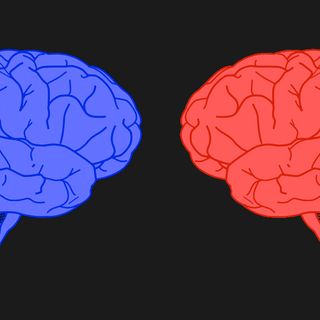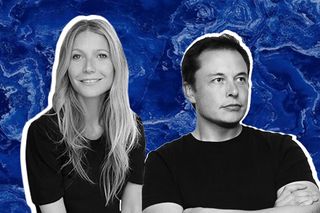
Why We Look to Celebrities to Save, Advise Us — Even When They’re Wrong
Plus, the rise of the Insta power couple, and a lot more, in this week’s roundup.

In The Buzz Cut, we give our take on all of the intellectual and Internet-famous, celebrity and bizarre, buzzy and overlooked news we gossiped about all week.
Way off base. Gwyneth Paltrow’s booming brand Goop was about to go to the next level by partnering with Condé Nast — but things fell through when Paltrow refused to let the editorial giant fact check her content. She’s not the only celebrity touting scientifically inaccurate advice. And yet we continue look to them when we need saving — a Twitter user’s casual request just prompted Tesla and SpaceX CEO Elon Musk to promise to provide clean drinking water for an entire city. Why do we keep looking to them for support, for advice?
Way on brand. “Maybe my purpose on this planet isn’t to procreate,” Jennifer Aniston says in a new, incredibly on-brand interview. Her chat feels a little scripted to let her rebut all of the judgment thrown at her over the years, but we love what she has to say anyway. And where do celebrities go to cash in on their brand when their brand is, well, over? A new app let normals pay celebrities (some of questionable fame) to send a personalised message via video. Speaking of brands, the new whirlwind of quickie engagements and weddings — think Ariana Grande and Pete Davidson, Justin Bieber and Hailey Baldwin — speak to the rise of a new kind of power couple, whose unions are almost like corporate mergers.
Way down there. A lot of women will relate to this essay on what it’s like to grow up (falsely) believing that tampons take your virginity. India isn’t the only country where these myths; in South Korea, women are looking to correct the country’s bad sex education and rampant misogyny. Elsewhere, women’s health is still a work in progress, as this exploration of vulvodynia — a painful, mystifying, but common condition — makes clear.
Way back when. Love triangles aren’t the only triangles we experience in life; when family dynamics ‘triangulate’ early in a kid’s life, the fallout can be lasting. And speaking of childhood, ever wonder what inspired Dr. Seuss’ favorite story, The Lorax? Find out here. Finally, this piece explores what it’s like to revisit your childhood’s favorite books — and reinterpret them as markers of your own growth.
Way to know. This essay, by the director of a music cognition lab, suggests our brains make the line between what is and isn’t music is blurrier than we think. And if you’re any like some of our team members who shall remain nameless, you will relate hard to this explanation of why some of us seem to forget names as soon as we learn them. Finally, on a more serious note, while neuroscience has yet to explain why some people do evil, it is starting to unpack the triggers of evil behavior.
Related


Michelle Williams Talks About All of Our Favorite Topics
